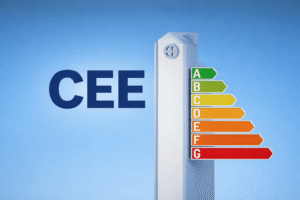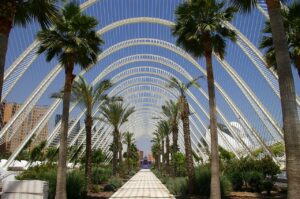Administrative preparation BEFORE the purchase
Before embarking on a property purchase in Spain, some administrative steps are essential.
- Obtaining the NIE (Foreigner Identification Number): it is necessary for any financial transaction and therefore for any real estate acquisition in Spain. To find out how to obtain it, see our article.
- Opening a Spanish bank account: this is not mandatory, but having a bank account in Spain considerably facilitates transactions and administrative procedures during the purchasing process.
- Determination of tax status: anyone who resides in Spain for more than 183 days per year (or whose economic or family interests are concentrated there) is considered a tax resident. Take stock before launching your project.
Financing
If you need financing for your acquisition, here's what you need to know:
- Non-residents can generally obtain financing for 60 to 70% of the property price. This implies that the buyer must have a substantial initial personal contribution.
- Tax residents, on the other hand, can have their purchase financed for up to 90% of the property price (for a first purchase or the purchase of a primary residence).
Good to know: in Spain, obtaining a mortgage is generally faster than elsewhere. Allow 7 to 8 working days on average.
Property search
Advice from Terreta Spain experts: the Spanish real estate market is rather opaque, and it is not uncommon to come across fraudulent online listings or overvalued properties. It is therefore not advisable to carry out your research alone. Entrust your real estate project to a professional who knows the local market.
Property verifications
In Spain, as the notary has a limited role in the real estate purchase process, it is advisable to use a lawyer to check for any outstanding debts or mortgages on the property. They will also examine the property's compliance with the land registry and local regulations. This step is of paramount importance to avoid problems that could prove very costly.
Property reservation
This is a key step in the real estate purchase process in Spain, which involves the payment of la señal, i.e. a deposit to secure the property (from 3 to 10% of the sale price).
- The señal allows the property to be withdrawn from the market.
- It proves the buyer's commitment.
- It protects the seller against possible withdrawals.
To find out more, read our practical guide on the subject.
Signing the arras contract
The arras contract is the equivalent of a preliminary sale agreement. In Spain, there are 3 types of arras, with varying degrees of commitment.
- The arras confirmatorias.
- The arras penitenciales (the most common type of arras).
- The arras penales.
We have prepared a comprehensive guide on arras for you.
Advice from Terreta Spain experts: sign the arras before a notary to guarantee the legal security of the transaction.
Signing of the public deed
It is called the escritura de compraventa, and it is the last step in the real estate purchase process in Spain. It takes place in the presence of a notary, who verifies the identity of the parties involved and the conformity of the documents.
During this meeting:
- The notary reads the deed to the parties.
- The buyer must pay the outstanding balance of the sale price (by banker's draft or bank transfer via a Spanish bank account).
- The property is registered in the Land Registry (el Registro de la Propiedad).
Conclusion
Purchasing property in Spain requires thorough preparation and an understanding of the administrative and financial steps involved. Engaging competent professionals, such as specialized lawyers and experienced real estate agents, helps to avoid pitfalls and secure the transaction. Proper anticipation of costs and taxation is also essential for a successful investment. We address this point in another factsheet.
Further information
This article gives you a quick and concise overview of the subject. To go further, Terreta has prepared a very detailed article on the process and stages of buying real estate in Spain, complete with retro-planning. Click here to read it.
Sources: Terreta Spain







